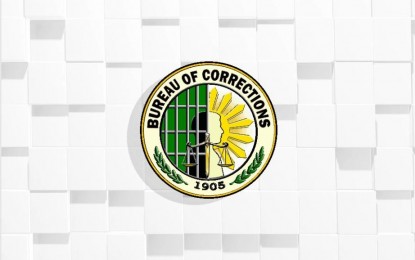
MANILA – The Bureau of Corrections (BuCor) on Monday asked the Supreme Court (SC) to issue guidelines on the application of good conduct time allowance (GCTA) stipulated under Republic Act (RA) 10592.
In a position paper submitted to the high tribunal, BuCor Director General Gregorio Pio Catapang said the GCTA’s application is confusing.
He cited the case of "Gil Miguel v. the Director, Bureau of Prisons" dated Sept. 15, 2021, where the court held, among others, that persons deprived of liberty (PDL) who were convicted of murder and other heinous crimes were disqualified from the grant of GCTA.
However, Catapang said that in the recent case of "Maclang v. Hon. Leila de Lima" where the former was convicted of the heinous crime of kidnapping for ransom, the SC held that the respondent is entitled to the benefits of RA 10592.
The case was referred to the Muntinlupa Regional Trial Court Branch 206 for the determination of the length of time in actual confinement, computation of GCTA and whether he is entitled to immediate release from confinement on account of the full service serve.
Catapang said that as of March 17, the BuCor has listed 136 persons deprived of liberty who have overserved the maximum 40-year period of imprisonment.
"If we apply the GCTA, what is holding the bureau from releasing them and processing the papers of other deserving PDLs is the Miguel case and the 2019 amended IRR (implementing rules and regulations) of the GCTA law," he added.
The BuCor also sought clarification from the SC on the duration of penalties if it is computed at 30 years or 40 years as well as the issuance of clear guidelines, specifically on the correct formula on how to compute GCTA, Special Time Allowance for Loyalty, Time Allowance for Teaching and Mentoring and Credit for Preventive Imprisonment.
“It is our earnest hope that this issue be taken up during the Tripartite Justice Sector Coordinating Council national summit scheduled next month where the problem of congestion in prison facilities will be discussed,” Catapang said.
The GCTA Law was enacted on May 29, 2013.
However, the SC in 2014 declared the law's IRR as invalid insofar as it provides for its prospective application since it works to the disadvantage of petitioners because it precludes the decrease in the penalty attached to their crimes and lengthen their prison stay.
In 2019, an amended IRR was enacted and expanded the 2014 IRR, particularly Section 2 (GCTA during Service of Sentence).
Under this section, the good conduct of a PDL by final judgment in any penal institution, rehabilitation or detention center or any other local jail shall entitle the inmate to the deductions described in Section 3 of the GCTA law, from the period of the sentence.
Meanwhile, recidivists, habitual delinquents, escapees and PDL charged or convicted of heinous crimes shall not be entitled to GCTA. (PNA)
